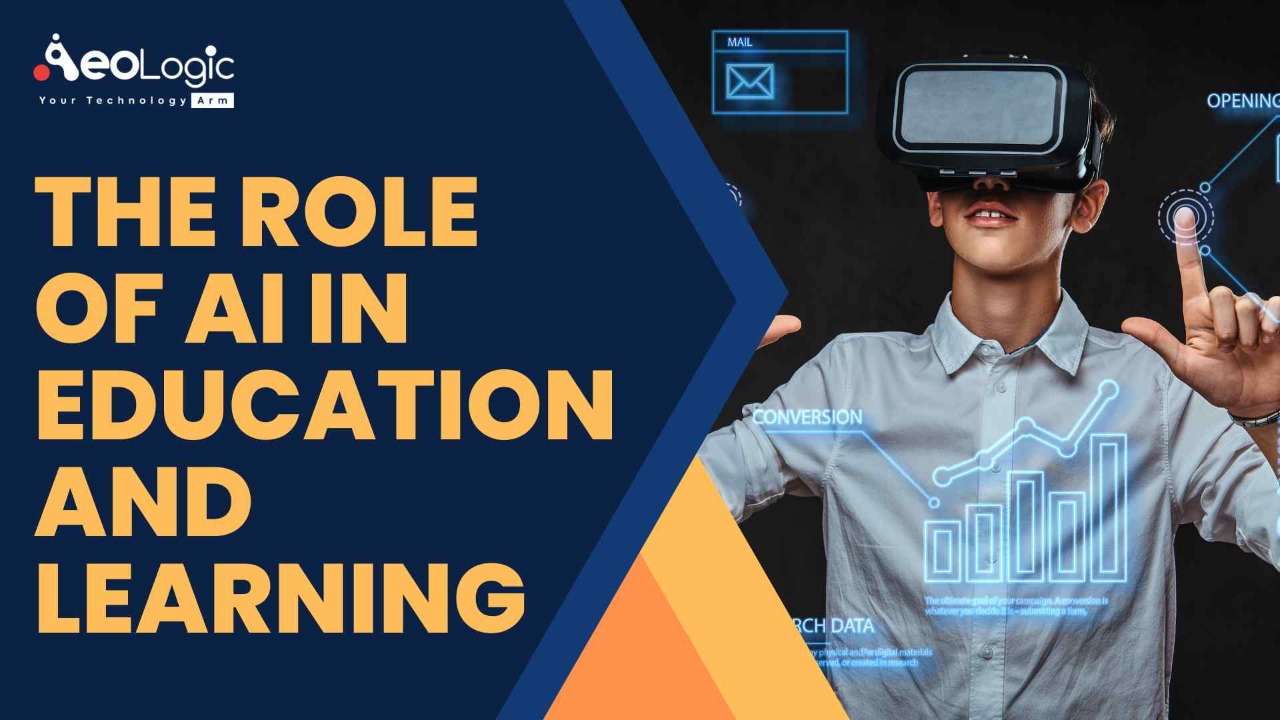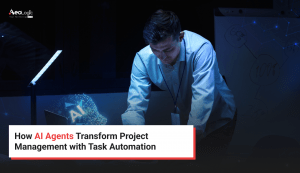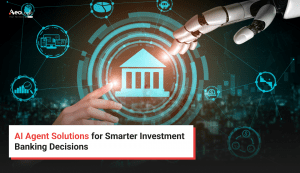Artificial Intelligence is a buzzword now and every next person is talking about it. Science fiction writers, futurists, and film producers have all spent decades speculating about the incredible developments that will emerge from the widespread adoption of artificial intelligence. But are these going to happen? Will AI enhance the way students learn? Will AI be adopted widely in Education & Learning? Is the future of education going to be dominated by AI? We are surrounded by multiple questions and abeyance. In this article, you will get all the answers. Before we start let’s understand what is artificial intelligence first.
“Our intelligence is what makes us human, and AI is an extension of that quality. “
– Yann LeCun Professor, New York University
Artificial Intelligence In Education: What Is It?
Artificial Intelligence is a term used to describe a wide range of computer programs that can perform tasks that require human intelligence. These programs are also known as intelligent machines or autonomous systems. In fact, AI can be defined as the science of making humans like intelligent machines.
In education, AI is a technology that is used to develop a system that can mimic human learning. This is done by using the power of data analytics to develop algorithms. These algorithms can then be used to improve the learning of the students.
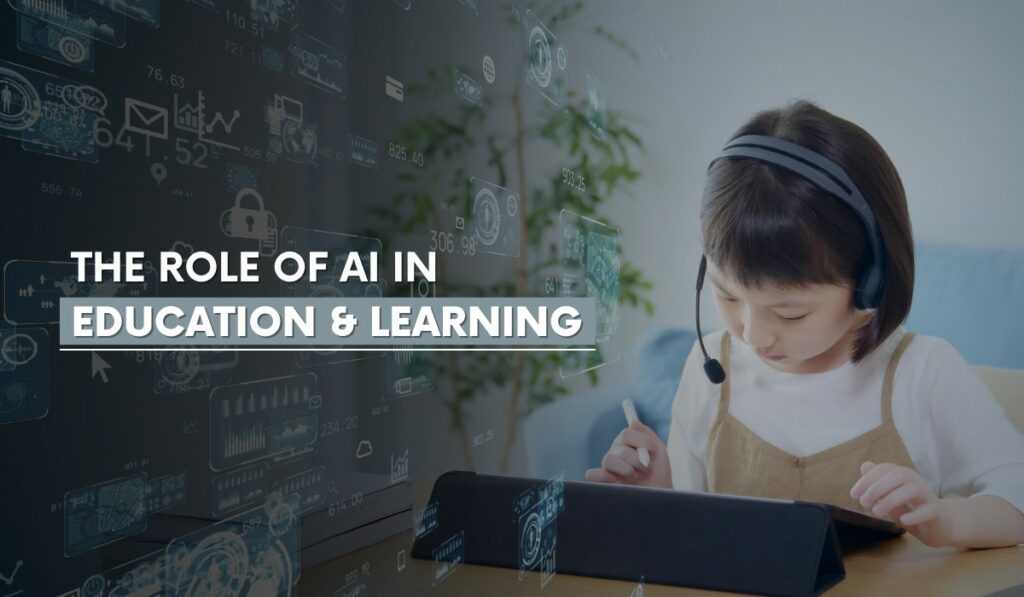
Artificial Intelligence In Education: How It Works?
While AI-powered solutions have been around for a while, the industry has been slow to adopt them. However, the pandemic changed the landscape dramatically, forcing educators to rely on technology for virtual learning. Now, 86 percent of educators believe that technology should be an integral part of education. AI has the potential to improve both learning and teaching, assisting the education sector in evolving to benefit both students and teachers.
We’ve had enough of seeing this technology used brilliantly in science fiction movies. It’s now a part of our everyday lives, and it’s given us a lot of chances in the education field. Here are some of the pivotal roles that artificial intelligence is/will play in education and learning.
Role of AI in Learning For Students
Suppose you are a student seating in a class of 60 students. It will be much more difficult for a teacher to analyze and access each and every student in real-time whether they are learning what they know about the previous topic. Are you ready to understand the current topic or not? AI can solve this problem for you. Your personalized AI can help you guide what you have to learn and with which efficiency.
Artificial intelligence can help students learn better and faster when it is used with good learning materials and teachers. AI systems can also assist students in getting back on track faster by alerting teachers to issues that the naked eye cannot detect.
Role Of AI In Education For Teachers
AI can help teachers create a positive learning environment for students. It can also help them to understand the needs of each individual student. It can help teachers identify students who need extra attention and help them with their homework. It can also help teachers keep track of the progress of their students, so they can determine whether or not a student is ready for a promotion or a test.
The administrative tasks can be simplified using AI. Grading, assessing, and responding to students is a time-consuming activity that the teacher could optimize using AI.
Role Of AI In Education For Parents
AI can help parents understand their child’s needs better, so they can provide the right kind of education for their children. It can also help parents understand how their children are doing at school, so they can get in touch with the teacher or the principal if something is wrong. AI can help parents find the best schools for their kids. It can help them to find out what kind of education their kids will get at a particular school.
AI can help parents find information about their children, such as school projects and tests. They can also use it to keep track of their child’s grades and homework.
Do You Know?
The global AI in education market is projected to reach USD 3.68 billion by 2023, at a Compound Annual Growth Rate of 47% during the forecast period 2018 till 2023.
Key Benefits of AI in Education And Learning
Artificial Intelligence is an emerging technology that is growing at an incredible pace. AI is changing the way we live, learn, work, and communicate. It is already in our homes, cars, and everywhere else. AI is not only changing the way we live, but it is also changing the way we learn and how we teach. AI has the potential to be a powerful tool for education. Let’s see some of the benefits of AI.
- Personalized Learning: Artificial intelligence can determine what a student knows and does not know, allowing for the creation of a personalized study schedule for each learner based on knowledge gaps.
- Smart Digital Content: Content visualization, digital lessons, virtual reality environment, 3d animated content with the use of AI can help students learn faster and better.
- Task Automation: It takes a lot of time for a teacher to grade, assess, and respond to kids. AI can help in automating all repetitive tasks which take a lot of time.
- Answering Questions: Chatbots powered by artificial intelligence (AI) is able to answer a wide range of general and repetitive questions from students without the involvement of a member of the faculty.
- Universal Access: AI tools can make educational classes accessible to all learners, regardless of their ability to hear or see or speak a different language.
- Better Engagement: Using AI, each student receives a customized schedule, tailored tasks, engagement with digital technology, and personalized recommendations.
Also, AI can be used to help students with learning disabilities. It can also be used to help teachers assess student performance. AI can also be used to make sure students are learning the material they need to know to succeed. It can also be used to provide feedback to teachers so they can provide better instruction.
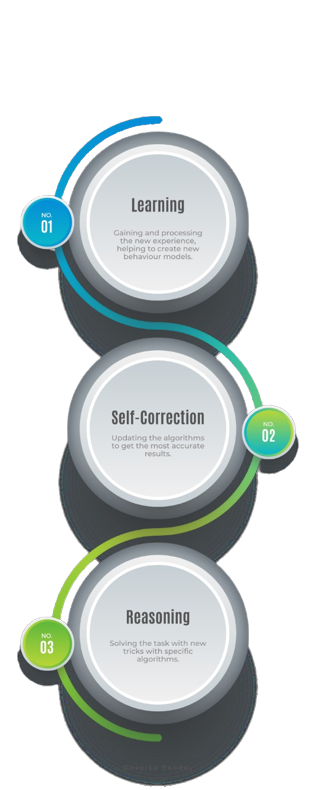
AI Provides Customized Approach To Education
If you follow worldwide trends, you are aware that personalization is prevalent everywhere. The primary benefit of artificial intelligence is the ability to train it to carry out a broad range of tasks, providing in this way a customized approach to education. Obtaining a collection of tools designed to meet the individual requirements of students and teachers is a universal answer that will optimize their daily activities, boost productivity, promote accessibility, and scale the processes.
Some Facts to Consider
- According to Mckinsey, teachers spend 50 hours a week spending less then half of the time in direct interaction with the students.
- According to Holon IQ, Testing and assesment are considered very high impactfollowed by post secondary, then K12 and a wide range of views on what AI means for Pre-K.
- According to CB-Insights, South-East Asia is a major driver of AI in Education.
- According to Orion Market Research, increasing trends of smart learning and demand for personalized education is the driving force behind the boost of AI in ed-tech industry.
Conclusion
Now, you must have understood the potential of AI in the education sector. Yes, it is really revolutionizing the education industry.
In conclusion, we’ve been hearing a lot about the power of AI and how it will revolutionize education. It’s easy to get excited about the potential of AI in education, but it’s important to understand the limitations of the technology and how it can be applied to the classroom. There are lots of claims being made about the power of AI in education, but very few real-world examples of how it’s being used in schools. In this article, we take a look at what we know about AI in education and whether it really has the potential to revolutionize learning.
FAQ’s
What are some examples of how AI is used in education?
AI is used in many ways, including: helping students learn by analyzing data, creating personalized learning experiences, assessing students’ progress, grading and providing feedback.
Can AI replace teachers?
No, AI cannot replace teachers. AI is used to help teachers improve their teaching methods.
What is the future of AI?
The future of AI is that it will be used in all aspects of our lives. It will be used in education, health care, and in the workplace.
What are some applications of AI in schools?
AI is being used to help students with homework, to read and write, to grade papers, and to do research.
Related Blogs:

